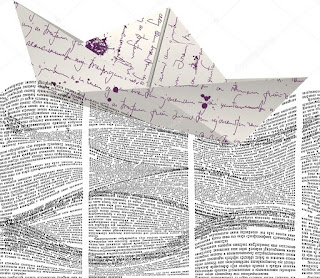The pandemic began with Beijing censoring Chinese media on the subject. If the press were free in China, it is possible the world would have realized the seriousness of the virus sooner, and saved lives.
Governments, including democratic ones, are using the
pandemic as a pretext to withhold information. The ostentatious purpose is not
to create panic. The Turkish interior ministry arrested some social media users
for spreading fear. In two weeks, its government had to acknowledge the wide
spread of the virus. Jordan arrested Roya TV channel’s owner and news director
for reporting on loss of jobs. Romanian president signed an emergency decree
closing websites of fake news (as defined by the president). Myanmar banned 221
news websites, including its major news outlets. Caixin is a rare investigative
group of journalists in China. The Chinese government removed many articles
from its website.
One can understand repression of expression under
dictatorships. But Hungary is part of the European Union. Its prime minister,
Victor Orban, has used the pandemic to rule by decree. Under a new coronavirus
law, he is a de facto dictator, right in the centre of free Europe. Hungary’s
emergency law now stipulates five-year prison sentences for Hungarians found to
be spreading “false “information.
Tracker 19 launched by Reporters without borders (RSF) offers
live updates on the pandemic’s impact on journalism in each country. It is
useful to check to what extent our government is attacking the freedom of press
this year.
*****
A print journalist has always managed to achieve
depths that TV journalists can’t. The newspaper reporter can enter parliaments,
courts, police stations, mafia dens with just a pocket diary and a pen.
Reporters develop relationships over time, and manage to get off-the-record
comments. They can spend months investigating suspected activity. The pandemic
has in major ways affected this. Many reporters have lost their jobs. Those
retained are asked to change their specialization. Sports journalists have
little to do. If you ask a leading sports journalist to report on crime, it is
like asking a heart surgeon to become a neurosurgeon.
Reporters can’t conduct confidential conversations
remotely. Modern technology instills fear in people wanting to give information
online. This has caused further deterioration in the already falling standards
of journalism.
*****
Reading is an effort, much greater than listening or
watching. That is why visual media is more powerful than text. Podcasts are now
popular, along with audio novels. Attention spans are declining exponentially. One
can assume the newspaper industry as we know it will disappear in 20-30 years
from now.
Newspapers will be exclusively available online.
Articles will be much shorter in length, texts combined with videos. I
recommend the Axios news website. Started four years ago, it offers
brief, short articles. Its founder wanted it to be a combination of the
economist and twitter. Axios is a good example of the shape of
things to come.
*****
Newspapers can get rid of their offices, printing
equipment, save lots of trees, and make reporters work from home. Like
travelling salesmen, they can move to collect their stories. In that sense, it
is possible for good journalism to survive. People who enjoy reading newspapers
can pay subscriptions. (For the last fifteen years, I have not read a newspaper
or a magazine in a paper format. I am a digital subscriber of eight newspapers.
By the way, as a measure of compassion, all expensive newspapers in the world
have made coronavirus news free-of-cost).
*****
The longer the pandemic continues, the speedier will
be the process of digitization of the print media. Those of us who care for
democracy and freedom of expression must try to make sure the digital print
media remains independent and vibrant.
Ravi

वर्तमान पत्र वाचणेच चांगले
ReplyDeleteYes. Your last paragraph says it all
ReplyDelete